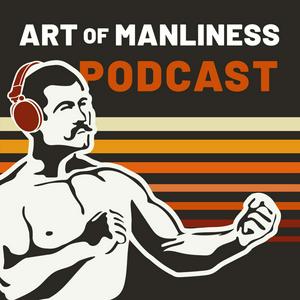Not long ago, the primary concern people had about boys was that they were wild, impulsive, and out of control — getting into fights, pushing limits, and stirring up trouble. Today, the problem has flipped. The more common challenge isn’t reckless behavior, but inert passivity. More and more young men are anxious, apathetic, socially isolated, and seemingly uninterested in doing much of anything at all.
Vince Benevento, the founder of Causeway Collaborative — a male-specific counseling center — and the author of Boys Will Be Men: 8 Lessons for the Lost American Male, has spent nearly two decades working on the front lines of this shift. As a therapist, coach, and mentor who specializes in helping young men between the ages of 14 and 30, Vince has worked with both the combustible and the checked-out and developed a clear, experience-honed framework for what actually helps guys get unstuck, take ownership of their lives, and move forward with purpose.
In today’s conversation, we unpack what Vince has learned through years of work with boys and men, and how his approach — which is rooted more in action than in talk — can be applied not just in the therapist’s office, but by parents and mentors. We dig into why traditional therapy often fails young men, and how to give them the drive, accountability, and sense of connection they crave. We discuss the importance of teaching young men to build life “brick by brick” and helping them find their wild, their thing, and a good group of friends.
Resources Related to the Podcast
AoM Podcast #810: How to Turn a Boy Into a Man
AoM Podcast #926: The 5 Shifts of Manhood
AoM Podcast #1,028: The 5 Marks of a Man
AoM Podcast #886: What the World of Psychology Gets Wrong About Men
AoM Article: Get Your Son Out of His Bedroom
AoM Article: How Labeling Your Emotions Can Help You Take Control
See Privacy Policy at https://art19.com/privacy and California Privacy Notice at https://art19.com/privacy#do-not-sell-my-info.


